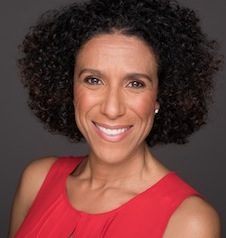By Kyle Smith
The spring semester has seen two distinguished guests share their knowledge and experience with the Shakespeare & Performance community. Wednesday, January 17 featured a talk in Masonic Blue by Bill Barclay, Director of Music at the Globe Theatre. Whereas many guests are invited by the program, Barclay reached out to the program as he was in the area.
“Bill contacted me because he was in Washington, D.C. working on a project at the National Theatre, where he is composing music for a service celebrating the 200th anniversary of the birth of Walt Whitman, and was on his way to Norfolk where he was working with the Virginia Symphony as part of a composition work he was doing there,” said Dr. Paul Menzer. “Given that he’s a practitioner at the Sam Wanamaker Playhouse and the Globe in London, he’d always wanted to come through Staunton and I thought this was a great opportunity to grant him for the 23 hours he was in town and talk with the students.”
Menzer also indicated that plans for bringing Barclay back in spring of 2019 are in their early stages. Barclay has worked at theatre companies all over the world, including over 100 productions at the Globe.
“It may surprise you to learn this, but we’re not really that much of an academically minded place,” Barclay said of the Globe. “We have loads of educational partners, but we have no MFA company like you guys do here.”
One of the highlights of the talk was Barclay detailing a 2015 production of The Merchant of Venice and its staging of a conversion for Shylock at the end of the play. As Shylock (played in this production by Jonathan Pryce) is baptized, his daughter Jessica (played by Pryce’s real-life daughter Phoebe) begins singing a Hebrew lament.
“It really packed a wallop, because the text of that moment was the music,” Barclay said. “There’s so much that you can call text. A stage direction is text. Music is text. And we needed text to just nail how awful this world was. And it was the music that was able to give that emotional power.”
Following the visit from Bill Barclay, the horror of some of Shakespeare’s plays would be revisited just a few weeks later on Thursday, February 1, when the Mary Baldwin community welcomed Dr. Ayanna Thompson of George Washington University. Thompson gave a talk for Phi Beta Kappa students at Francis Auditorium where she explained the thrust of her work on race in Shakespeare.
“When I teach Shakespeare in my university classes, when I see a contemporary Shakespearean production on film, on stage or on the Internet, when I hear and see allusions to Shakespeare in commercials, television shows, and the popular media, I see race,” Thompson said. “It’s always there, it’s always present, it always impacts the way Shakespeare is being employed.”
Thompson’s talk included an overview of non-traditional casting, reception studies, and an examination of contemporary race studies and the semiotics of race. Thompson began by telling the audience about Ira Alridge, a black nineteenth-century actor who made a career in Europe out of Shakespearean performance. Given that Alridge lived 200 years ago, Thompson pointed out, there is actually nothing new about “non-traditional” casting of black actors in Shakespeare, which makes it all the more surprising that no theatre company in the United States, Canada, or the United Kingdom surveys their audiences on “non-traditional” casting.
Two days later, Thompson led a workshop in Tyson at the Blackfriars which examined text from Othello to engage in discussion on the possible addition of racially charged text in the first scene as it is printed in the First Folio.



